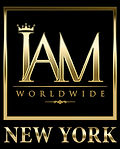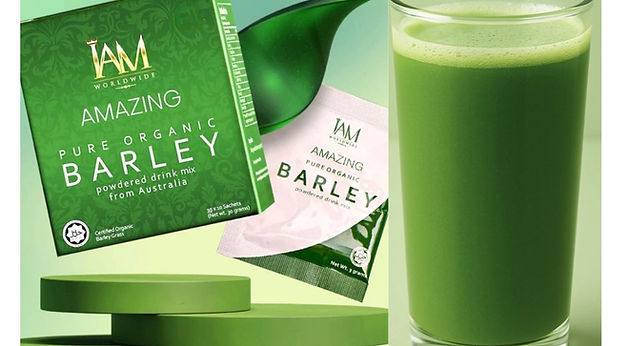Understanding the Causes, Risks, and Solutions of Hypertension
- Aileen Fernando
- Jun 12, 2025
- 4 min read
Hypertension, often referred to as high blood pressure, is a common and potentially dangerous health condition. It affects millions of people worldwide and is a major risk factor for heart disease, stroke, and other serious health issues. Understanding the causes and risks associated with hypertension is crucial for prevention and effective management. In this blog post, we will explore the various factors contributing to hypertension, its associated risks, and practical solutions for hypertension management.
Hypertension Solutions
High blood pressure typically develops over many years and can affect any individual, regardless of age or lifestyle. Blood pressure is determined by two measurements: systolic pressure (the force of blood against artery walls when the heart beats) and diastolic pressure (the force of blood when the heart is at rest between beats). A reading of 120/80 mmHg is considered normal, while anything above 130/80 mmHg is classified as hypertension.

Causes of Hypertension
There are several contributing factors to hypertension, some of which are controllable, while others are not.
Genetic Factors
Family history plays a significant role in an individual's risk of developing hypertension. If a close relative has high blood pressure, your chances may increase due to genetic factors inherited from your family line.
Lifestyle Choices
Diet: Consuming a diet high in salt, saturated fats, and cholesterol can lead to hypertension. The American Heart Association recommends limiting sodium intake to less than 2,300 milligrams per day, or ideally, to 1,500 milligrams for most adults.
Physical Activity: Inactivity can contribute to weight gain and hypertension. Regular physical activity helps maintain a healthy weight and lowers blood pressure.
Alcohol and Tobacco Use: Both excessive alcohol consumption and smoking can raise blood pressure. Limiting alcohol intake and quitting smoking are essential steps in preventing hypertension.
Stress
Chronic stress can lead to temporary increases in blood pressure. Over time, the heart may struggle to cope, resulting in persistent hypertension. Finding effective stress management techniques, such as mindfulness or regular exercise, is vital.

Age and Ethnicity
As we age, our blood vessels naturally stiffen, which can increase blood pressure. Moreover, certain ethnic groups, particularly African Americans, are more prone to hypertension, often at an earlier age and a more severe degree.
Risks Associated with Hypertension
Untreated hypertension poses numerous health risks that can affect various organs in the body. Here are some key risks associated with high blood pressure:
Heart Disease
Hypertension is a leading cause of heart disease. Over time, high blood pressure can damage arteries and contribute to the hardening of arteries (atherosclerosis), increasing the risk of heart attack or heart failure.
Stroke
High blood pressure is a major risk factor for strokes. It can cause blood vessels in the brain to rupture or become blocked, leading to a stroke.
Kidney Damage
The kidneys play a vital role in regulating blood pressure. High blood pressure can damage the blood vessels in the kidneys, impairing their ability to filter waste from the blood. This can lead to chronic kidney disease or kidney failure.
Vision Loss
Hypertension can damage the blood vessels in the retina, leading to vision loss. This condition is known as hypertensive retinopathy and can result in permanent damage if left untreated.

Managing Hypertension
With a solid understanding of the causes and risks surrounding hypertension, it is essential to explore ways to manage and treat it. Here are some actionable recommendations for lowering blood pressure:
Regular Monitoring
Regularly check your blood pressure, either at home or during health check-ups. This way, you can catch any potential issues early on and address them promptly.
Dietary Changes
Increasing intake of fruits, vegetables, whole grains, and lean proteins, while decreasing sodium and processed foods, can significantly lower blood pressure. The DASH diet (Dietary Approaches to Stop Hypertension) is specifically designed to combat this condition.
Exercise
Engage in at least 150 minutes of moderate aerobic exercise each week. Activities like walking, cycling, or swimming can help lower blood pressure and improve overall health.
Stress Management
Incorporate stress-reducing techniques into your daily routine, such as yoga, meditation, or breathing exercises. These methods can help lower blood pressure and enhance mental well-being.
Medication
In some cases, lifestyle changes may not be enough to control hypertension. Consult with a healthcare provider to discuss potential medication options if necessary.
By adopting these strategies, you can effectively reduce your blood pressure and decrease the associated risks. For those looking for in-depth advice, consider reading more about managing high blood pressure.
Final Thoughts
Understanding the causes and risks of hypertension is the first step toward preventing and managing this health condition effectively. By making specific lifestyle changes and seeking professional assistance when necessary, you can take control of your blood pressure and overall health. Remember, prevention is always better than cure, so be proactive about your health today!






Comments